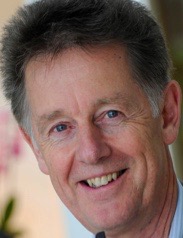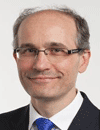Other Track AgendasAntibody and Peptide Therapeutics | Cell & Gene Therapeutics | Cell Culture, Engineering and Formulation Techniques | Downstream Processing |

Wednesday, 20 July 201108:00 | Registration | 09:00 | Public Funding for Academic Bioprocessing Research in the UK
James Philips, Business Interface Manager, Biotechnology and Biological Sciences Research Council, United Kingdom
I will be giving a talk on the support for bioprocessing research from the UK Government, primarily focusing on the Research Councils and the Technology Strategy Board. | |
Session: Early Phase Purification |
| | 09:30 | Antibody Fragments – New Approaches for Production
John Liddell, Head of Process Science, Avecia Biologics, United Kingdom
With approved products already being marketed, antibody fragments have the potential to become a major category of biotherapeutics building on the clinical successes of antibodies. | 10:00 | Solutions for the Expression and Purification of Pre-Clinical Grade Therapeutic Proteins
Paul Kerr, Director, Fusion Antibodies, United Kingdom
| 10:30 | Coffee Break and Networking in the Exhibition Hall | |
Session: Protein Recovery and Purification |
| | 11:15 |  | Keynote Presentation Computational Modelling and Combinatorial Techniques for the Design and Implementation of Affinity Adsorbents for Biopharmaceuticals
Christopher Lowe, Professor, University of Cambridge, Director, Cambridge Academy of Therapeutic Sciences, United Kingdom
|
| 11:45 | Advances in Membrane Chromatography
Doreen Corkill, Senior Process Development Specialist, Sartorius Stedim Biotech, United Kingdom
Membrane chromatography is fast becoming a preferred choice for the polishing chromatography step. This technology will be discussed in detail, alongside the new trends in more longstanding technologies such as depth and crossflow filtration. Finally novel technologies for virus inactivation will be discussed, such as Ultraviolet – C Irradiation and automated systems for the low pH holding step will be presented. | 12:15 | Lunch and Networking in the Exhibition Hall | 13:30 | Poster Viewing Session | 14:15 | Continuous Chromatography (MCSGP) for the Purification of Therapeutic Proteins
Thomas Mueller-Spaeth, Research Associate, ETH Zurich, Switzerland
In the production of therapeutic proteins, the demand for cost reductions, higher loads and higher throughput has triggered a search for alternatives to the state of art batch chromatography purification in terms of chromatographic and non-chromatographic process concepts. On the chromatography side, the use of cost-effective ion exchange stationary phases and gradient chromatography in combination with multicolumn continuous chromatographic processes (MCSGP) presents an option for biopurifications. Advantages over batch chromatography include the possibility of simultaneous achievement of high yield and purity, a higher productivity and lower buffer consumption. | 14:45 | Modeling and Prediction of Antibody Chromatography Purification
Christian Frech, Head, University of Applied Sciences, Germany
| 15:15 | Coffee Break and Networking in the Exhibition Hall | 16:00 | Host Cell Protein Interactions During the Recovery of Monoclonal Antibodies
Daniel Bracewell, Senior Lecturer, University College London, United Kingdom
| 16:30 | PEGylate and Purify: A Dual Role of His-tag for PEGylated Therapeutics
Ji-won Choi, Director, PolyTherics, United Kingdom
HiPEG™ technology is a site-specific way of conjugating PEG on widely used his-tag on therapeutic proteins. Established IMAC-based purification methodologies can be used to recover his-tagged protein even after the PEG has been conjugated to the his-tag. | 17:00 | Drinks Reception |
Thursday, 21 July 2011 |
Session: High Throughput Bioprocessing |
| | 09:30 |  | Keynote Presentation Thinking Small so as to Gain the Bigger Picture: Progress in High Throughput Bioprocess Development
Nigel Titchener Hooker, Professor/Deputy Head/Director, University College London, United Kingdom
Speedy bioprocess development is critical to the success of biopharmaceutical products. This talk will present successful case studies carried out at UCL in collaboration with a series of industrial partners to accelerate process discovery and development. |
| 10:00 | State of the Art and Future Tools for High Throughput Process Development in the Biopharmaceutical Industry
Jurgen Hubbuch, Professor, Karlsruhe Institute for Technology, Germany
High throughput process development methodologies have changed process development in the biopharmaceutical industry dramatically. Hand in hand with the QbD approach by the FDA we see a shift towards a rational and platform based process development. Tools used in this methodology are high throughput screening strategies, statistical and model based design of experiments, HTS compatible analytics and data analysis. | 10:30 | Coffee Break and Networking in the Exhibition Hall | |
Session: Reducing Timescales, Manufacturing Costs and Streamlining the Process |
| | 11:15 | Nanoencapsulation of Hydrophobic Proteins to Enable Simple Downstream Purification
Timothy Dafforn, Professor, University of Birmingham, United Kingdom
| 11:45 | Downstream Processing Optimization for an Insect Cell-Based VLP Vaccine Candidate
Tiago Vicente, DSP Scientist, Redbiotec, Switzerland
| 12:15 | Lunch and Networking in the Exhibition Hall | 13:30 | Poster Viewing Session | |
Session: Non–Protein Purification |
| | 14:15 | Too Big to Bind? Novel Techniques for Separation of Human Embryonic Stem Cells Based on Physical Properties
Nicholas Willoughby, Lecturer, Heriot Watt University, United Kingdom
This work uses techniques such as atomic force microscopy (AFM) to investigate physical properties of different cell types such as elasticity, topography and surface charge. By identifying significant differences in physcial properties between pluripotent cells and their more differentiated progeny, we can develop more simplistic, robust and scalable purification techniques than those currently based upon complex antigen intereactions. By studying variations in elasticity and surface charge properties of different cell types we are able to design separation devices based upon channels and charged surfaces which selectively remove undifferentiated hES cells from a mixed population of cell types. | 14:45 | Micro-Rheological & DLS Characterization of High Concentration Proteins & Protein Aggregates
Samiul Amin, Manager, Malvern Instruments Limited, United Kingdom
| 15:15 | Coffee Break, Networking in the Exhibition Hall and Close of Conference |
|

 Add to Calendar ▼2011-07-20 00:00:002011-07-21 00:00:00Europe/LondonDownstream ProcessingSELECTBIOenquiries@selectbiosciences.com
Add to Calendar ▼2011-07-20 00:00:002011-07-21 00:00:00Europe/LondonDownstream ProcessingSELECTBIOenquiries@selectbiosciences.com